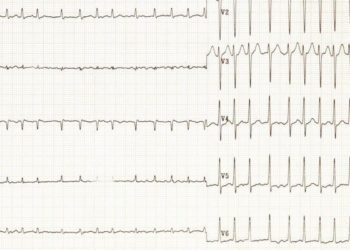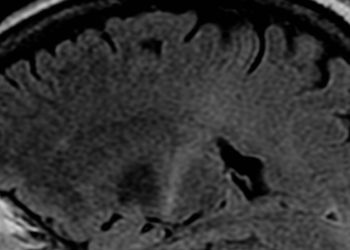Rare genetic variants may be enriched in patients with high-risk spontaneous coronary artery dissection
1. This prospective case-control study demonstrated that approximately 20% of patients with spontaneous coronary artery dissection with high-risk features had a rare genetic variant associated with a vascular connective tissue disease.
2. Variants in the COL3A1 gene, a gene associated with connective tissue disease, were the most common variant seen in patients with spontaneous coronary artery dissection.
Evidence Rating Level: 3 (Average)
Study Rundown: Spontaneous coronary artery dissection (SCAD) is a cause of myocardial infarction, most often in younger women, not due to atherosclerosis. Growing evidence suggests that there is a genetic basis for SCAD with genes known to cause vascular connective tissue diseases (CTDs); however, the extent and effect of these genes are not fully understood. This case-control study performed whole-exome sequencing (WES) to assess whether individuals with high-risk SCAD features are associated with an increased likelihood of carrying rare genetic variants. Patients with nonatherosclerotic SCAD between May 15, 2014, and August 14, 2018, were recruited from the Canadian SCAD registry. WES was performed by comparing those with SCAD to matched controls or the Genome Aggregation Database (gnomAD). The primary outcome was the burden of genetic variants in patients with high-risk SCAD. Among vascular CTD genes, there were 23 variants in 13 out of the 22 CTD genes that were identified. Genetic variants across CTD genes identified were significantly greater in the high-risk SCAD cohort (n= 94) as compared to the gnomAD cohort (n= 125 748) (odds ratio [OR]: 2.6 [95% CI: 1.6-4.2]). Variants in these identified genes were seen in 16 out of 94 (17%) SCAD patients. Among CTD genes identified, variants in the COL3A1 gene were most prevalent; this gene carried an OR of 13.4 (95% CI: 4.9-36.2) of being identified in the high-risk SCAD cohort compared to healthy controls. Additionally, variants in the genome-wide association study (GWAS) were seen in 6 out of 94 (6.4%) individuals with high-risk SCAD (OR: 2.6 [95% CI: 1.6-8.2) where the LRP1 gene was most enriched (OR: 3.7 [95% CI: 1.4-10.1]). Overall, this WES case-control study observed rare variants in genes in approximately 20% of patients with SCAD, highlighting the genetic basis for SCAD and its association with vascular CTDs. This study was limited by its small sample size, limiting its statistical power.
Click to read the study in JAMA Cardiology
Click to read an accompanying editorial in JAMA Cardiology
Relevant Reading: Prospective cardiovascular genetics evaluation in spontaneous coronary artery dissection
Image: PD
©2022 2 Minute Medicine, Inc. All rights reserved. No works may be reproduced without expressed written consent from 2 Minute Medicine, Inc. Inquire about licensing here. No article should be construed as medical advice and is not intended as such by the authors or by 2 Minute Medicine, Inc.






